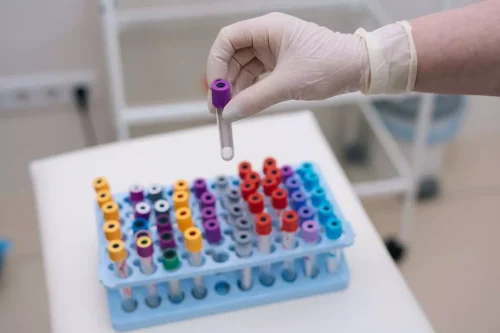
Alcohol is a powerful reinforcer in adolescents because the brain’s reward system is fully developed while the executive function system is not, and because there is a powerful social aspect to adolescent drinking. Specifically, prefrontal regions involved in executive functions and their connections to other brain regions are not fully developed in adolescents, which may make it harder for them to regulate the motivation to drink. Through abstinence, however, studies have shown that a regeneration of brain function, metabolism and brain volume (including white matter) is possible.
- Alongside alcohol’s neurotoxic effects, we see how it can lead to brain fog.
- Here, we outline a framework for understanding alcohol-induced changes in the brain, which can help you appreciate the challenges faced by many patients with AUD when they try to cut back or quit drinking.
- Brain fog can be caused by various factors, such as lack of sleep, stress, malnutrition, medication, neuroinflammation, and the use of certain substances, such as alcohol.
- The difference in the rate of improvement between the alcoholics and the nonalcoholics is then an indication of the “true” recovery of cognitive functioning.
How does the brain change as AUD develops?

Processed foods are high in sugar and unhealthy fats, which can lead to inflammation and impair brain function. What you eat significantly affects how you feel and your overall brain health. Alcohol can disrupt sleep, so it’s important to get plenty of rest after drinking.
- However, those who do may find these symptoms significantly impacting their daily lives.
- It is not a medical condition in and of itself, so a doctor cannot diagnose a patient with brain fog.
- Most people who have dealt with alcohol addiction have some idea of what brain fog feels like because it is very similar to how you might feel after a round of heavy drinking.
Common Symptoms of Alcohol Fog

The brains of people with shorter drinking histories may be more resilient physically or may better carry out neurophysiological adjustments. Or, up to a certain number of drinking years, alcoholics may be able to learn to compensate for underlying neurological damage to produce unimpaired behavior (e.g., by performing a task a different way). Perhaps a dysfunctional performance only appears after excessive drinking has gone on for a certain length of time, producing a threshold above which cognitive impairments become observable.
Does Cognitive Status Affect Treatment Outcome?
The capacity to deal with new situations that demand the processing of multiple sources of information underlies humans’ ability to adapt to changing circumstances. Recovering alcoholics require such adaptability to change from a lifestyle that includes continual drinking to one that involves no drinking. Hence, alcoholics may be deficient in exactly those cognitive capabilities they need the most to recover successfully from alcoholism. And when you refrain from drinking alcohol, it takes a toll on this body organ. For instance, cessation can trigger an imbalance in your brain’s chemicals, leading to cognitive disturbances and instability.

The more prolonged and heavier the alcohol use, the greater the probability that the brain fog will remain for a longer time. Thankfully, there are plenty of ways that you can do to treat brain fog naturally and alcohol addiction safely, and enhance your brain function, such as the ways we listed above. This is because alcohol withdrawal brain fog can be dangerous and even life-threatening. We highly recommend that you quit drinking to preserve your mental health. So, if you’re struggling with brain fog from alcohol, do your best to go for a walk in the sunlight every day.
Men, on the other hand, had less activation to emotionally charged images, including images of alcoholic beverages. Berman recalls that one of her research subjects, who had been sober for over a decade, pressed the panic button when she saw a picture of alcohol during her MRI. When a person who drinks heavily stops abruptly, that rush of dopamine is also reduced. Eventually, the brain will try to recalibrate itself; and for the most part, it can restore its dopamine to more consistent levels.
While the long-term consumption of alcohol is harmful, research demonstrates that alcoholism causes various toxic, metabolic, and nutritional changes that interact to produce mental impairments in alcoholic patients. According to several studies, people who have severe alcohol abuse disorders have smaller and lighter brains than those who do not. In certain regions, the alcohol dependence recovery period may be pretty short. While various areas of the brain heal at varying speeds, the study’s early findings suggest that a significant portion of lost cognitive function is quickly restored.
- By 5 years, all other cognitive functions have returned to anormal level state.
- In alcohol addiction treatment, alcohol-induced brain fog is a significant problem.
- This includes shrinkage of dendrites in the adult brain, which research has shown will begin to return and spread after weeks or months of sobriety.
- They may find conversations hard to follow, or they may not be able to pay attention to presentations.
Cut yourself off from caffeine by six hours before bedtime, and drink plenty of water and other hydrating beverages. Set aside 30 minutes before retiring to engage in a wind-down routine, such as taking a warm bath or meditating. If possible, be consistent with the time you go to bed and what time you get up in the morning.
Long-Term Symptoms

Most people who have dealt with alcohol addiction have some idea of what brain fog feels like because it is very similar to how you might feel after a round of heavy drinking. During brain fog, you may experience any or all of the following symptoms. Some have rather rapid recovery from alcohol related cues while others take a while to recover from their addictive behaviors. Doctors take MRI scans to see how well the frontal lobe and other regions of the brain are healing and medical support is given at the treatment center or facility to attend to alcohol withdrawal symptoms. The human body cannot function properly if the brain is impaired or damaged because of substance use disorders. Addiction biology has studied the effects of alcohol and drug abuse on the human body, including the brain reward system.
If you drink heavily for weeks, months, or years, you may have unwanted physical and mental symptoms when you try to stop. Working with a therapist can help you work through the emotional aspects of longer-term withdrawal, like anxiety and depression. It can also help you develop alternative coping mechanisms alcohol brain fog and tools to manage alcohol cravings. At Monument, you can connect with a therapist specialized in helping people cut back on drinking, such as myself. Alcohol withdrawal can occur when a person who has used alcohol for a significant period of time stops drinking or significantly decreases their use.


 214-505-5083
214-505-5083